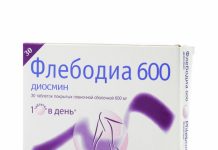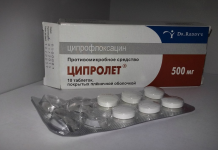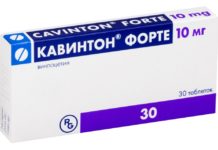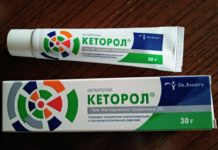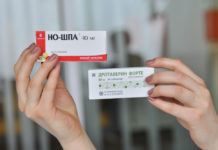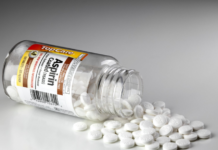Children's colds are often accompanied by a cough. For treatment, pediatricians prescribe Ascoril syrup to small patients. Is it safe to take the drug, how to do it right - these questions worry many parents.
Material Content:
- 1 Syrup "Ascoril": release form, composition
- 2 Pharmacological properties and indications for use
- 3 At what age can children be given?
- 4 What cough should be taken with dry or wet?
- 5 Ascoril syrup: instructions for use for children
- 6 Drug Interactions with Other Drugs
- 7 Proper storage conditions for the drug
- 8 Contraindications, side effects
- 9 Drug Analogs
Syrup "Ascoril": release form, composition
The drug is produced in dark bottles with a volume of 100 or 200 ml. Inside is an orange substance, viscous and sweet. This form of medicine is suitable for children, they like its berry taste.
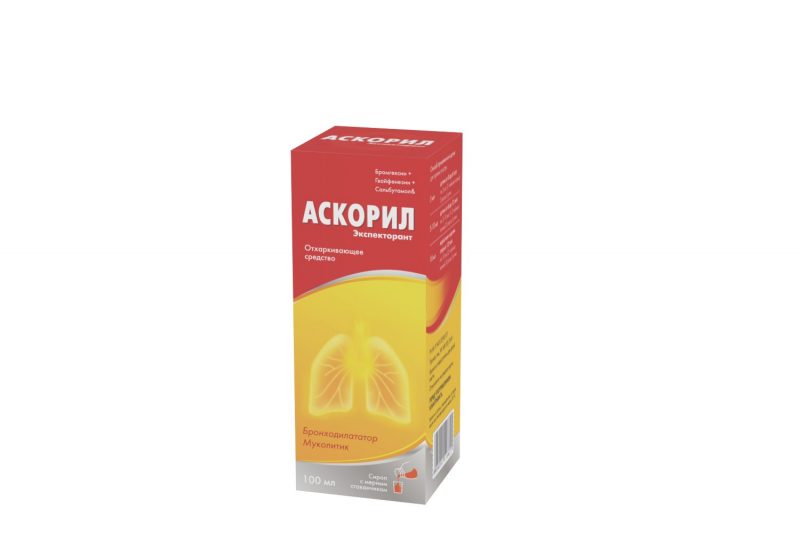
“Ascoril” includes a complex of active substances that complement and reinforce each other.
The main components:
- guaifenesin (100 mg in a bottle of 100 ml);
- bromhexine (40 mg);
- salbutamol (20 mg);
- menthol (10 mg).
To improve the taste, sweeteners, flavorings (currants, pineapple), dyes and preservatives are added to the syrup.
Pharmacological properties and indications for use
Expectorant - the drug still has such a name. The term indicates the special properties of the drug. Translated from Latin, expectorare means “drive away”, “deliver”. It is these characteristics that Ascoril Syrup for Children has. It relieves the patient of sputum in the organs of the respiratory system and removes it from the body.
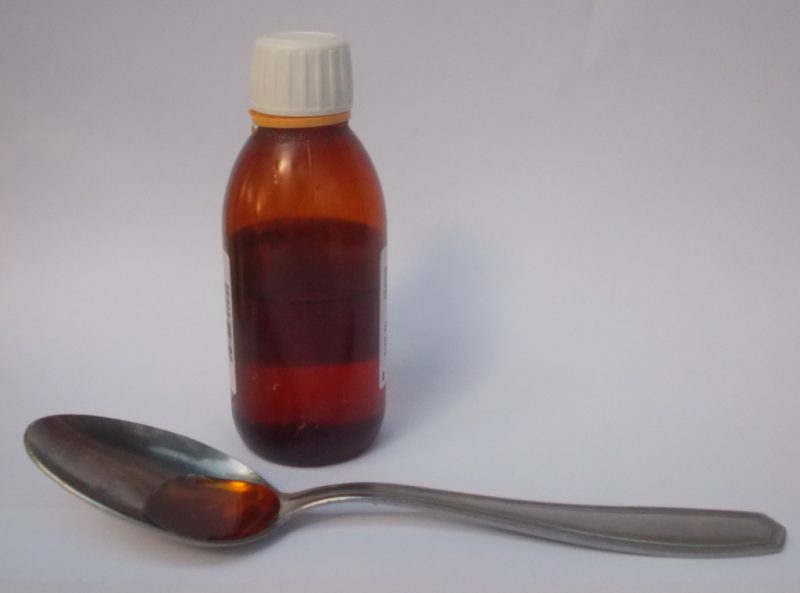
All components contribute to the effectiveness of the drug.
- Salbutamol is a powerful bronchodilator. The substance relaxes the walls of the bronchi, quickly relieves spasm.Thanks to this action, the child does not experience pain during coughing. In addition, salbutamol stimulates the expansion of the blood arteries, improves blood circulation.
- Bromhexine and guaifenesin are mucolytics. With their help, sputum liquefies, becomes less viscous, increases in volume and is more quickly excreted from the bronchi. The components produce an antitussive effect.
- Menthol has a relaxing effect, it removes the tone, reduces the number of coughing attacks.
General complex action of Ascoril syrup:
- Improves expectoration.
- Makes sputum less viscous, increases volume.
- Relieves spasm.
- Reduces the risk of stagnation of mucus, which provokes inflammatory processes.
- Activates the adrenoreceptors of the respiratory system.
- Expands the lumen of the arteries.
- Increases lung capacity.
Given the pharmacological properties of the drug, doctors recommend it for such diseases in children:
- attacks of bronchial asthma;
- laryngitis;
- whooping cough (spasmodic cough);
- bronchitis of various types (obstructive, tracheobronchitis);
- pneumonia;
- emphysema of lung tissue;
- tuberculosis;
- pneumoconiosis;
- cystic fibrosis (congenital endocrine pathology).
Read also: adult pertussis - symptoms and treatment
You can not decide on the use of the medicine yourself.
The doctor will prescribe a dosage taking into account the nature of the disease, based on the condition of the child.
At what age can children be given?
Doctors do not recommend Ascoril to children under the age of 1 year. The presence of severe complications, side effects requires careful use of the syrup. If the child is 3, 5 or 7 years old - all the same, without a doctor’s prescription, the drug should not be given.

Only a specialist will be able to prescribe the correct course of treatment with syrup, with the right dosage and selection of concomitant drugs, to ensure effective treatment and reduce the risk of complications.
What cough should be taken with dry or wet?
You need to know how the drug affects coughs of a different nature. If the child accumulates sputum in the bronchi and does not go outside, a remedy is needed that will help alleviate the condition. Dry cough is an indication for taking Ascoril to start the process of removing mucus.
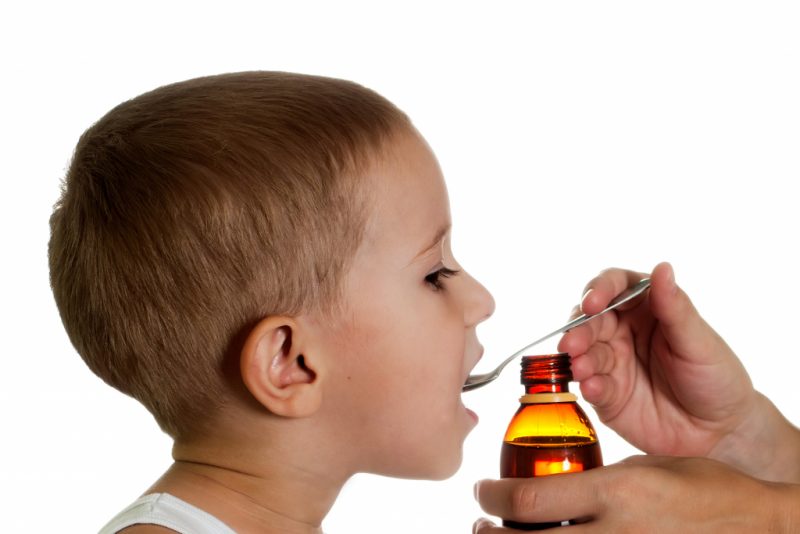
There are different opinions of doctors regarding the use of syrup for wet cough. Some experts say that the drug will aggravate the condition. After all, the components of the drug increase the amount of sputum, and there is so much of it. It will be more difficult for the child to get rid of such an amount.
Other doctors evaluate the degree of complications. Even if the cough is productive, but there is a spasm that prevents the child from breathing freely, salbutamol will help to quickly eliminate it.
Ascoril syrup: instructions for use for children
To avoid undesirable consequences, it is necessary to give the drug to children only after the recommendations of the pediatrician. Some parents believe that you can give pills instead of syrup. Doctors do not recommend this for patients under 6 years of age. The syrup form is better absorbed by the children's body.
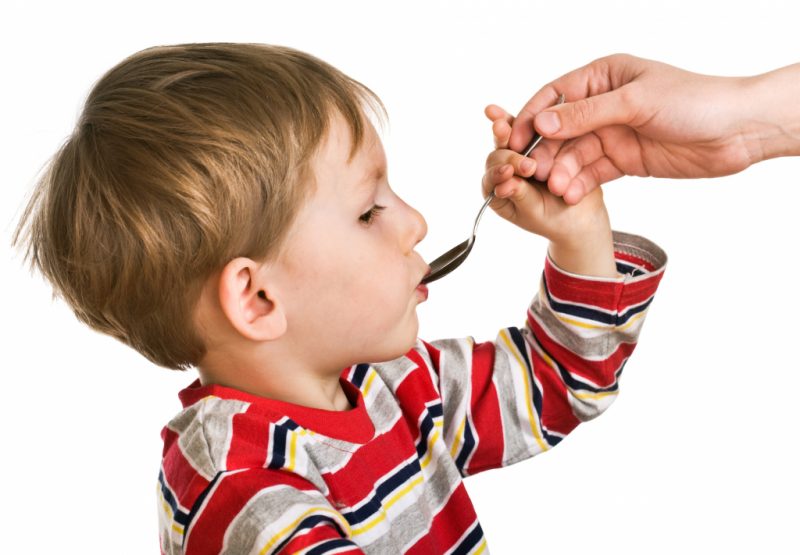
The duration of use is determined by the doctor, most often the syrup is taken 5-7 days. If the condition does not improve, doctors prolong the period. At the same time, it is undesirable to take the medication for more than 14 days.
Dosage for children
- 1-year-old toddlers and children under 6 years old should take 1 teaspoon (5 ml) of the product 3 times a day.
- For children from 6 to 12 years, pediatricians recommend a dose of 5-10 ml three times a day.
- More adult patients are advised to drink 10 ml of syrup three times a day.
The pediatrician may increase the dosage if indicated. But you should not do this on your own, even if the effect of the medicine is not observed.
How to take syrup before or after a meal?
It is necessary to give the child syrup half an hour to an hour after he ate. This will help the drug act faster. It is better to drink the medicine with plain water at room temperature. Juice, tea, soda, compote, milk, mineral water will not work.Alkalis weaken the effect of the therapeutic components of Ascoril, reduce the effectiveness of the drug.
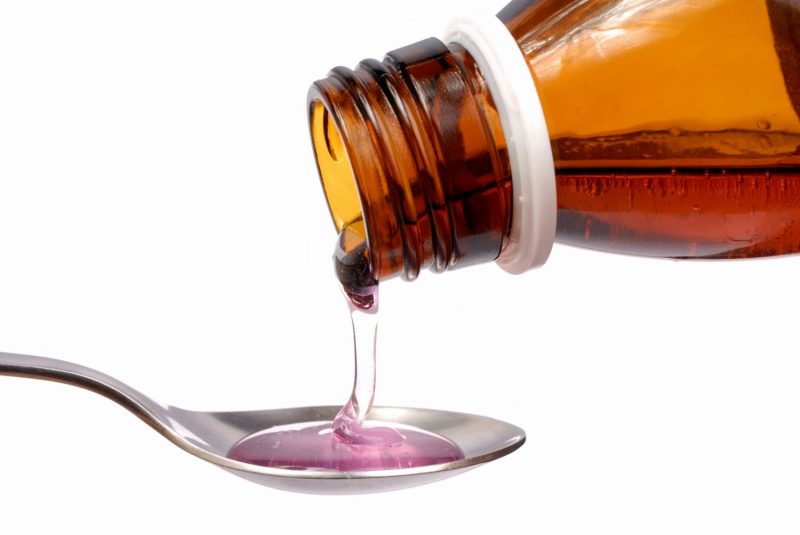
In no case should you take immediately the entire dose, calculated for a day, you must distribute it in 3 doses.
Otherwise, there is a risk of unpleasant complications.
Drug Interactions with Other Drugs
Pediatricians take into account which drugs Ascoril syrup for coughs can be combined with.
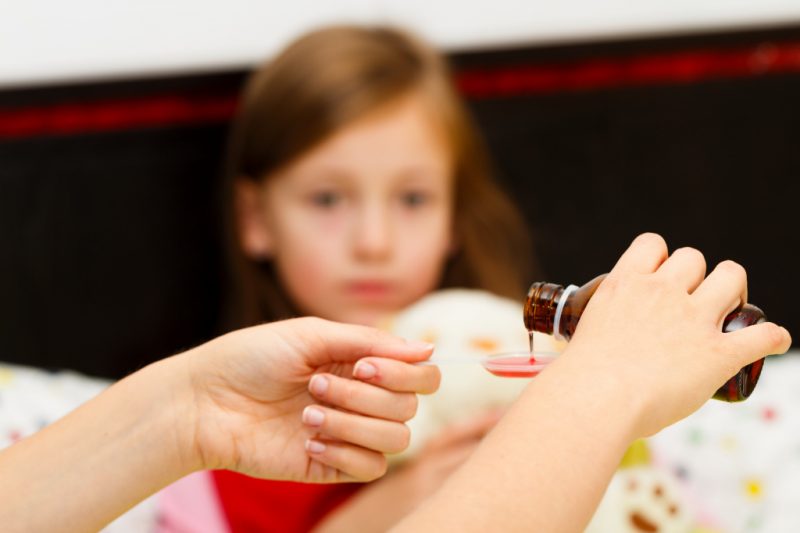
- Theophylline-based or beta-adrenergic agonists enhance the side effects of salbutamol present in the syrup.
- If you take beta-blockers together with Ascoril, they will not have the desired effect for treating small patients and cause a deterioration in well-being.
- Doctors also advise against combining syrup with antidepressants.
- The simultaneous use of syrup with diuretics and glucocorticoids (steroid hormones) causes a sharp decrease in the level of potassium in the blood.
- You can not drink syrup with codeine and other cough suppressants. They prevent the release of sputum, cause stagnation, which is fraught with serious complications of the disease.
- If antibiotics are included in the complex therapy, bromhexine helps active substances to penetrate the lungs faster, enhancing and accelerating their effect.
Proper storage conditions for the drug
Ascoril can be stored at home for 2 years from the date of production. In order for the syrup to retain its healing properties, it is better to put it away from sunlight, in a dry place where children can not get to it. The optimum temperature in the room is no more than + 25 ° С.
Contraindications, side effects

Pediatricians do not prescribe syrup in such cases:
- special sensitivity to the drug;
- inflammation of the heart muscle;
- myocardial rhythm failures (tachycardia, arrhythmia);
- heart disease;
- high blood pressure;
- disorders of the endocrine system (pathology of the thyroid gland, diabetes mellitus);
- glaucoma (increased intraocular pressure);
- complication of pathologies of the digestive system (ulcer, bleeding in the stomach);
- decreased liver and kidney functionality.
Side effects occur that are exacerbated by the uncontrolled use of Ascoril, an increase in dose or duration of use.
Among them:
- Allergic manifestations (urticaria, rash, anaphylactic shock).
- Disorders of the nervous system (irritability, insomnia, tremors, cramps, drowsiness, dizziness).
- Lowering blood pressure, rapid pulse.
- Malfunctions of the digestive system (upset, vomiting, bloating, gas).
- Exacerbation of peptic ulcer.
- Staining the baby's urine in a pinkish tint (not an alarming symptom).
- Spasm of the bronchi, collapse (deterioration in blood supply, threatening the life of the patient). The child suddenly turns pale, hands and feet become cold, facial features are sharpened, the wings of the nose are pulled.
Due to dangerous side effects, you must ensure that the child does not take the syrup on his own.
Proper dosage will ensure effective treatment without complications.
Drug Analogs
If a small patient is allergic to the additional components of Ascoril syrup, the pediatrician selects other drugs that are similar in action to the treatment.
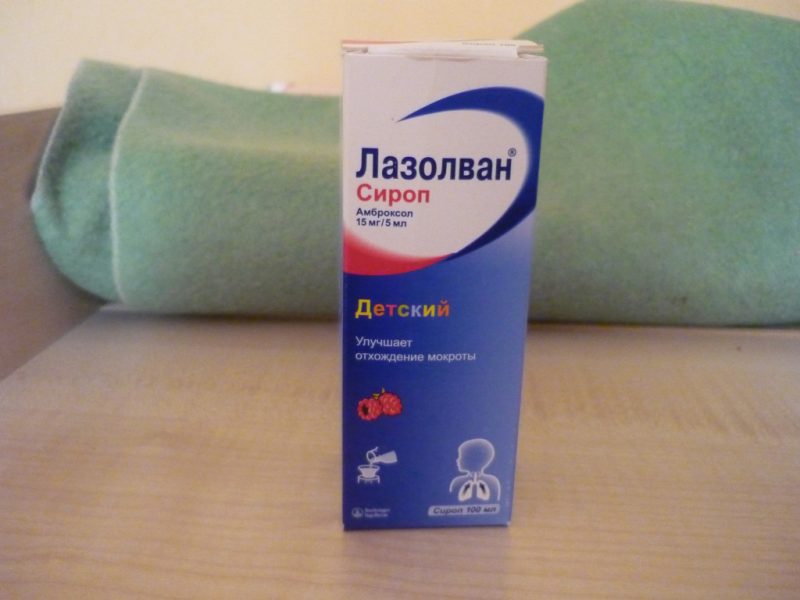
Among the analogues of Ascoril, there are:
- "Kashnol." The tool has the same basic active substances and pharmacological properties. Differs in raspberry liquid taste.
- Lorkof. The drug consists of bromhexine, salbutamol, guaifenesin and menthol, as a flavoring - the essence of pineapple. Produce in India, recommended from 3 years.
- "Lazolvan." This drug has a mucolytic effect, promotes expectoration. The active substance is ambroxol. Allowed to take children from birth.
- Erespal. The tool eliminates spasm of the bronchi. The active substance is fenspiride. Pediatricians recommend taking with asthma, bronchitis with obstruction, laryngitis, whooping cough. There are pills and syrup for this drug. Prescribed to children from 2 years.
- "Bromhexine."The drug has a mucolytic effect. It helps with different types of bronchitis, pneumonia, cystic fibrosis in children.
You can not replace "Ascoril" yourself with similar drugs. Each remedy has its own indications, contraindications and side effects. To avoid complications, follow the doctor's recommendations regarding the choice and dosage of medications.


